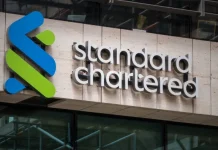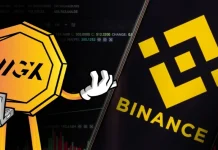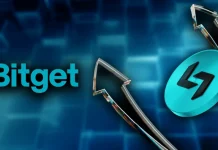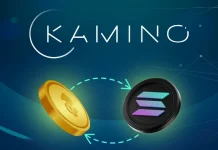
There is a remarkable moment that the crypto market in the US will cherish. It pertains to the approval of the FIT21 Act, which is yet to become law. FIT21 Stands for Financial Innovation & Technology for the 21st Century Act.
Significantly, the act has been passed in the US House of Representatives by a bipartisan 279-136 vote and now moves to the Senate and then Joe Biden for final approval. It is imperative for the Senate to give it a green light before it is put on Biden’s table for the final signature.
FIT21 holds significance for the crypto market for two reasons – it brings clarity and it overrides warnings issued by the US SEC.
The significance & implications of FIT21
For starters, FIT21 mentions that digital assets are commodities and not securities. Hence, the primary role of governance or regulation is with the Commodity Futures Trading Commission, shortly called CFTC. This effectively declares the claim of digital assets being securities as invalid. In other words, it removes the agency from the position of the primary authority.
The SEC, for a decade, has sought a concrete classification of securities, giving it the power to protect the interests of investors from possible market manipulation and fraud. Classification as commodities nullifies that attempt.
Notably, the SEC had earlier warned the government and other relevant authorities about the financial risks associated with the approval of the FIT21 Act. Apparently, the warnings seem to have been sidelined as the act moves forward for more approvals.
The crypto market has long sought clarity over regulations and control, and so has the SEC. By the looks of it, crypto enthusiasts may be inching closer to winning this decade-long battle. This will further affect the SEC’s ongoing battles with Ripple and Coinbase.
Not just regulatory clarity but also the growth of the crypto industry is on the frontline. This comes months after the SEC granted approval to Spot Bitcoin ETF and is considering approving more applications of Spot Ether ETF. One such application was approved on May 23, 2024.
SEC’s stand and the back-history
Gary Gensler, the SEC Chair, is determined on his stand. Gary has signaled that associated risks include, but are not necessarily limited to, bankruptcies, fraud cases, and failures. He claims to have instances to quote to support his argument and strengthen his case.
The commission’s efforts go back 10 years to entail the introduction of relevant measures to protect investors. FIT21 seems to affect those as well. Gary has further criticized issuers for self-certifying their products as digital commodities. This gives the SEC only 60 days to challenge the claim, hampering the Commission’s ability to take a better stand.
Spot Ether ETF is expected to gain more attention in the days to come. Traders and investors are looking forward to having the product listed on exchange platforms. Till then, ETH is swinging within the consolidating ranges. The Commodity Futures Trading Commission certainly pays attention to both developments. It could still be FIT21 to have a major share of it.
This recent development on FIT21 has also sparked connections with US politics. Donald Trump was seen supporting the crypto market during an event for Trump NFT holders.
Recently, Trump made some headlines signaling the acceptance of BTC or any other cryptocurrency in donations for his campaign. He also called out the current government, saying that they lacked understanding about cryptocurrency. This situation is basically a double-edged sword for Biden. It is believed that Joe and Gary Gensler share a similar opinion that crypto is not to be classified as a commodity.
The current market status
This legislation is viewed as a significant milestone for the cryptocurrency industry, which has long been impeded by regulatory ambiguity and inconsistent enforcement. Talking about its effect on the crypto market, it doesn’t reflect much on cryptocurrency price trends.
Currently, two flagship cryptocurrencies, BTC & ETH, have been performing regardless of this development. Bitcoin and Ethereum are pretty much stable, with BTC at $67,700 and Ether at $3,800 this week. They are eventually poised to mark a higher trajectory for a better value; however, the pace has not been determined yet. Ether’s movements are inspired by its ETF approval. BTC, on the other hand, is displaying normal fluctuations within a confined range.
The US House of Representatives approving the FIT21 Act is a pivotal moment, if not the final moment. It instills a sense of optimism underlying the fact that there is a narrow window still open for digital assets. The Senate and the POTUS will now take the final call on Financial Innovation & Technology for the 21st Century Act, possibly before the US presidential elections.











